Success is not final; failure is not fatal: It is the courage to continue that counts.
Success is not final; failure is not fatal: It is the courage to continue that counts.

A virtual private network (VPN) is a useful tool for protecting your online privacy, and CyberGhost is one of the best VPNs available. It puts an enticing emphasis on video streaming, but it backs it up with privacy features that are seldom seen and a vast network of servers and server locations. However, you'll have to pay a premium for these fantastic features.
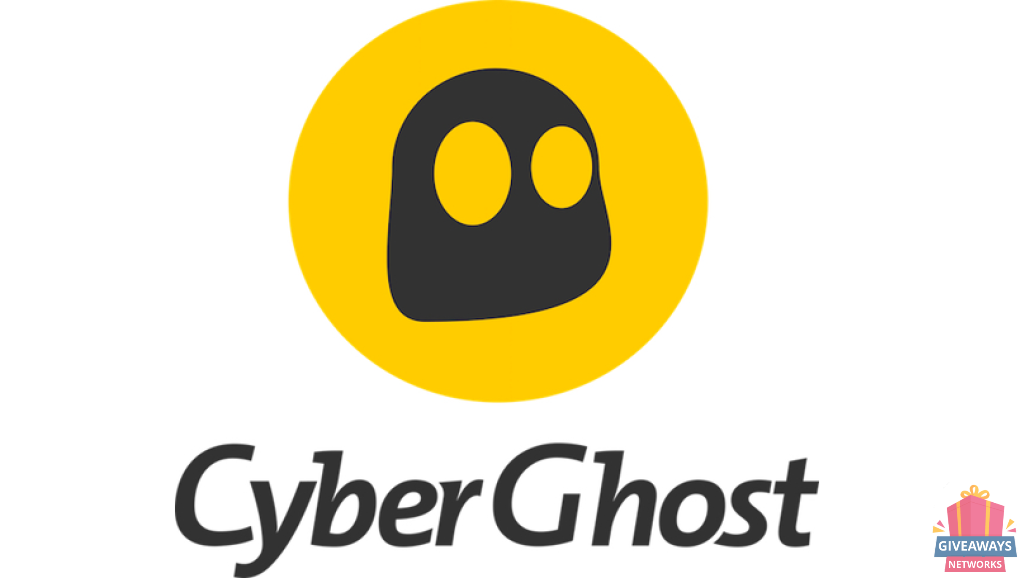
CyberGhost's one-month plan costs $12.99. That's a lot more than the existing industry average of $10.21 per month, and a lot more than Mullvad's €5 a month ($5.90 at the time of writing). For the same price as a CyberGhost subscription, you can get a Hotspot Shield VPN subscription with some other privacy and security resources included at no extra charge.
CyberGhost, like most VPN providers, provides the same set of features at different prices for different time periods. You pay more up front for a longer interval, but you save more in the long run as a result. CyberGhost does not currently sell an annual plan, although it could do so at some point in the future. It charges $47.94 for a six-month plan and $49.50 for an 18-month plan. The longer of the two plans stands out because it costs only half as much as the industry average of $71.87 for a 12-month contract. Although those discounts are appealing, I always suggest starting with a monthly VPN plan to see how well the service works for you.
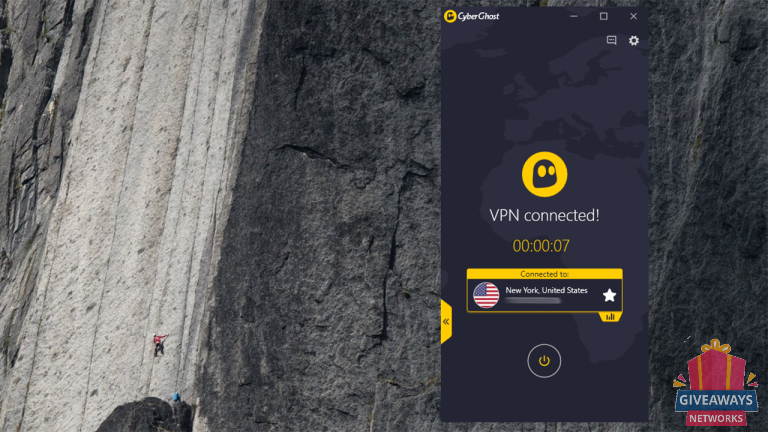
When it comes to protection, cost shouldn't be an issue because there are a plethora of free VPNs to choose from. TunnelBear has a free plan that limits data use to 500MB per month, while AnchorFree Hotspot Shield has a far more generous 500MB per day plan. ProtonVPN offers my favorite free subscription, which limits you to a few servers but does not impose a data cap.
Traditional payment methods such as credit card or PayPal can be used to buy a CyberGhost plan, but you can also pay anonymously with Bitcoin. Other VPN services have the option of using anonymous prepaid gift cards, such as those from Best Buy or Starbucks.
A CyberGhost subscription allows you to use seven computers at once, making it a good deal for a family of many devices. The industry average for VPN providers is five computers, but this seems to be shifting in favor of consumers. The number of simultaneous connections is unlimited with Avira Phantom VPN, Encrypt.me VPN, Ghostery Midnight, IPVanish VPN, Surfshark VPN, and Windscribe VPN.
Instructions for configuring a router to use the CyberGhost service are provided by CyberGhost. That's useful because enabling VPN security on your router secures all traffic for all of your network's devices, including smart devices that can't be configured individually. Some providers, such as TorGuard, offer preconfigured routers and streaming devices that are compatible with their services. If you don't want to do a digital DIY project, this is a good option.
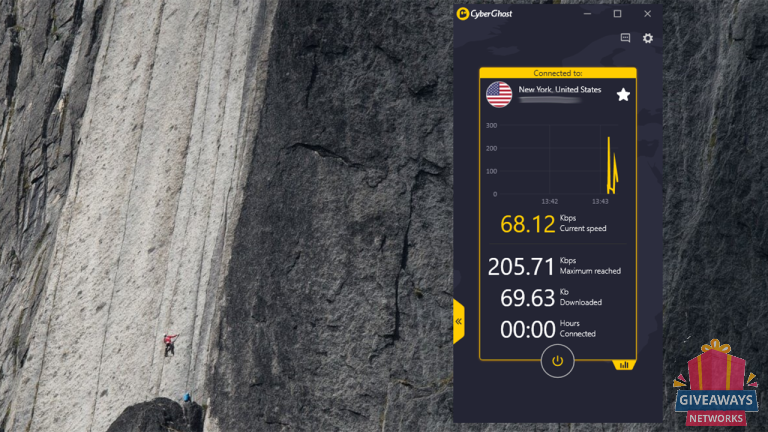
The more server locations a VPN provides, the more options you'll have when trying to spoof your location, and the better your chances of finding one close to where you are.
About 90 countries are served by CyberGhost's servers. It's a decent mix, with Africa and South America doing better than average, two continents that VPN providers sometimes overlook. Hong Kong, Russia, and Vietnam are all served by CyberGhost, but Turkey is not one of them. All of these places have authoritarian internet policies. CyberGhost is only surpassed by ExpressVPN in terms of geographic reach, with servers in 94 countries.
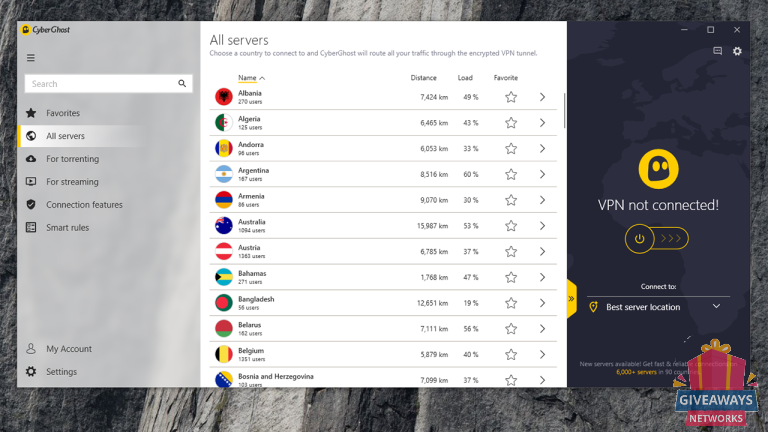
CyberGhost is also one of the most powerful players in terms of server count, with 5,900 available. Only NordVPN, Hotspot Shield VPN, Private Internet Access VPN, and TorGuard VPN have more than 5,000 servers, while ExpressVPN, Hotspot Shield VPN, Private Internet Access VPN, and TorGuard VPN have more than 3,000. More servers do not necessarily imply that the service is better, but they may be useful. If you really must connect to a VPN server in a particular area, getting more servers means you'll have a greater chance of finding one that isn't overburdened.
To use any protection or privacy program, you must assume that the app does as it says and that using it would not expose you to other dangers. This is especially relevant for VPNs, because when you use one, the organization will have as much insight into your online activities as your ISP. One of the main reasons to use a VPN in the first place is to protect certain activities. CyberGhost tends to do a decent job of protecting user privacy in general. I'll try to summarize it here.
CyberGhost's privacy policy explains what information it gathers, how it is used, and what information it does not collect. With the exception of an introductory introduction, the policy is dense and difficult to read. CyberGhost should follow TunnelBear's lead and create a customer-friendly, educational policy.
CyberGhost does not store user IP addresses, DNS requests, browsing history, connection/disconnection timestamps, session length, bandwidth, or the VPN server with which you communicate, according to the company's documentation. That's fantastic. The organization appears to collect data on attempted and successful connections, but only in aggregate form. According to a company spokesperson, CyberGhost not only does not track user activity, but it also has no way of knowing who is linked to a given server. Server CPU load, usable memory, server bandwidth use, and other metadata are all monitored by the business.
When it comes to blocking VPNs, Netflix is probably the most offensive. Netflix had several problems with CyberGhost. I was unable to stream from a VPN server located in the United States, but I had no trouble streaming from one of the servers dedicated to video streaming. However, since VPN blocking is a cat-and-mouse game, a VPN that works with Netflix today might be blocked tomorrow.
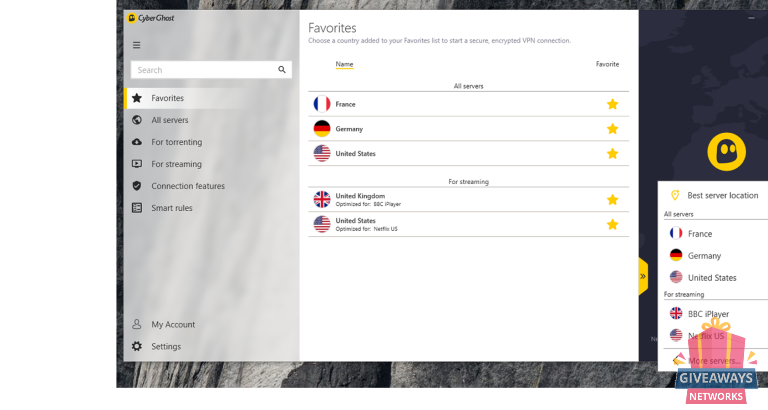
Although the security provided by a VPN is essential in and of itself, some VPN providers provide add-ons and sweeteners to make their services seem even more appealing. For example, TorGuard has the most extensive menu of options, allowing you to pay monthly fees for additional simultaneous connections, dedicated IP addresses, and access to a 10GB network.
CyberGhost, on the other hand, offers dedicated IP addresses and ad blocking through its VPN link, as well as malware blocking; I have not checked these features. TunnelBear, for example, offers ad blocking as a standalone browser plug-in, which gives users more choices than invisible blocking.
CyberGhost launched a new tokenized scheme for distributing dedicated IP addresses in September 2020. This means the organization would be able to assign dedicated IP addresses without saving the IP address. A IP address can be purchased for $5 per month in Canada, France, Germany, the United Kingdom, and the United States in addition to CyberGhost's subscription fee.
Using a VPN would almost definitely slow down your internet connection. I run a series of comparative tests with Ookla's internet speed test tool to get a sense of how significant the effect is. More information on our methods and the limits of our research can be found in our feature on how we test VPNs. (It's worth noting that Ookla is owned by Ziff Davis, the same company that owns PCMag.)
The performance of CyberGhost was a mixed bag. It reduced download speed test scores by 73.9 percent, far exceeding the category's median result. In other studies, it performed better, with just a 28.2 percent decrease in upload speed and a 35.7 percent increase in latency.
You can see how CyberGhost compares in the chart below with the top performers among the 40 services we tested.
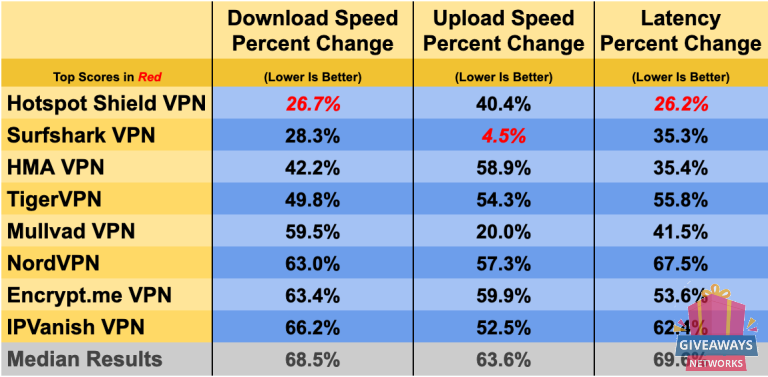
CyberGhost has a lot to recommend it. The business has a vast and expansive server network, as well as a comprehensive range of security features and a firm commitment to privacy. Its app is simple to use, and it allows for up to seven simultaneous connections. In addition, the organization wisely stresses the significance of video streaming. The catch is that it does so at a higher-than-average rate.
Send to friends via email|
75%
|
25%
|
Save a lot of money and time, get best software deals & free licenses, courses for free
